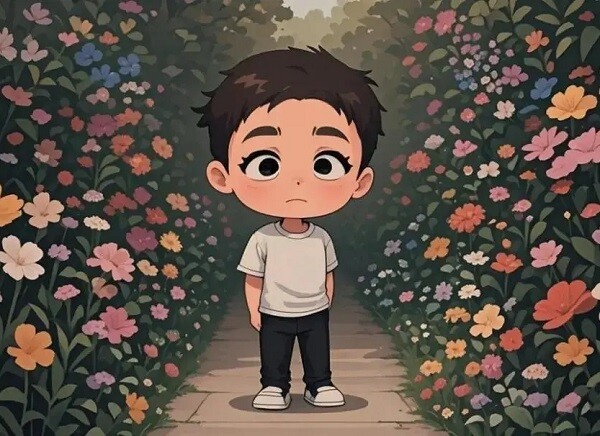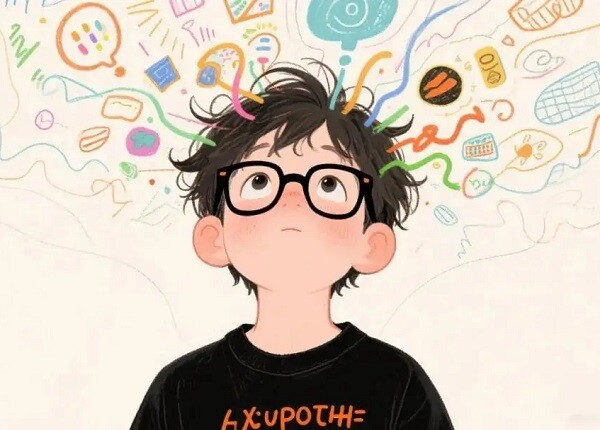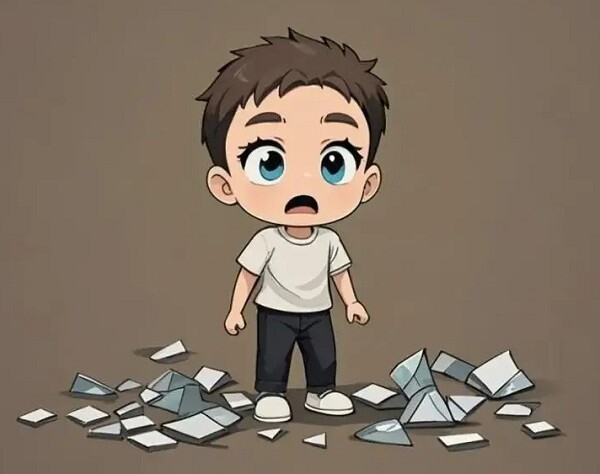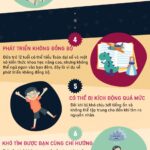From a different perspective, this could be an exceptional performance by intelligent children.


Crying is not a sign of weakness, but of heightened sensitivity
Why is crying a sign of intelligence? In reality, these children are exceptionally sensitive to changes in emotions, tones, and environments.
They are more perceptive than their peers, quickly noticing and intensely reacting to disappointed gazes or tense atmospheres.
This is not “acting”; rather, it is an indication of their strong ability to perceive and understand the world, as if they possess an accurate “emotional radar.” They deeply sense and experience subtle emotional shifts and interpersonal cues.
This heightened sensitivity often forms the basis for strong empathy and observation skills, which are core qualities of many artists and creators. Numerous renowned artists, writers, and thinkers throughout history, such as Albert Einstein, were described as “sensitive and thoughtful” in their childhood. This trait is a crucial potential for profound insights into human nature and creative expression.
When encountering such traits in your child, refrain from scolding them with phrases like, “Don’t cry” or “You’re being naughty!” These accusations may unintentionally make them feel that their emotions are unacceptable, leading to self-repression or more intense rebellion.
Instead, try to understand and accept their emotions. Say something like, “I know you’re feeling sad/frustrated/angry. Is it because of XXX?” Validate their emotions and let them know it’s normal to feel this way.
Then, help them recognize and name their emotions. Ask questions like, “Are you feeling sad? Or scared?” Teach them to express their emotions verbally.

Additionally, set aside private time each day, such as 10 minutes before bedtime, to patiently talk and discover what made them happy or sad during the day. Nurturing this sensitivity safeguards the potential of future artists or leaders in the humanities.

Daydreaming indicates deep thinking
Why does daydreaming signify intelligence? It’s because of the state of concentration and immersion in one’s thoughts.
Your child might be pondering an intriguing problem, creating a story in their mind, or reflecting on something they observed during the day. This ability to maintain prolonged inner focus is considered a crucial foundation for becoming a scientist, engineer, or deep thinker. A classic example is the mathematician Perelman, who had a habit of staring at walls as a child.
Concentration is essential for deep learning, problem-solving, and creative thinking. In such situations, avoid scolding your child by saying, “Stop daydreaming and get on with your homework!”

There are ways to make your child’s concentration more effective. First, determine whether they are genuinely thinking or avoiding their tasks. If they are quiet and their eyes are focused, they are likely deep in thought.
Respect your child’s thinking time. When they are concentrating on reading, playing with toys, or daydreaming, unless there’s an emergency, give them uninterrupted private time.
Once they’ve calmed down, ask curiously and gently, “You seemed very focused just now. Were you thinking about something interesting?” Encourage them to share their rich inner world and affirm the value of their thoughts.
Protecting and nurturing this inner concentration lays the foundation for their future academic exploration and deep work.

Dismantling objects isn’t destructive; it shows a spirit of exploration
Some children are always active, climbing, and taking things apart, which can worry parents. However, from a brain science perspective, this behavior also indicates intelligence and signifies curiosity and proactiveness.
These children eagerly seek to understand how things work (why does a toy move? What’s inside a remote control?) and aren’t satisfied with superficial phenomena. They embody the spirit of practical exploration.
Many great inventors and engineers, such as the Wright brothers and Google founder Larry Page, had a strong desire to explore and “take things apart” when they were young.
While dealing with a mischievous child can be challenging, try to restrain your initial reaction and refrain from blindly scolding them as “wasteful” or “too naughty.” Such comments may hinder their desire to explore and thirst for knowledge.
There are ways to adjust your approach. First, determine whether their behavior stems from curiosity or deliberate mischief. If it’s out of curiosity and exploration, guide them instead of prohibiting their actions.

Provide your child with legal objects to dismantle, such as an old alarm clock or a broken toy, to satisfy their desire for practical exploration.
You can also purchase toys that can be taken apart and reassembled multiple times, like Lego, to guide them towards construction and creative exploration.
As they work, engage and encourage deeper thinking: “Wow, you took it apart! Did you discover what makes it move?” Explore the inner workings together, turning curiosity into knowledge. Of course, clearly explain which items are absolutely off-limits for dismantling, such as electrical outlets, valuable items, or dangerous objects.
These children are usually full of energy, so channel their energy into outdoor play, climbing, cycling, and sports. Transform their destructive power into construction and research, nurturing their innate exploratory instincts and creative potential.
The inspiration from the Harvard study isn’t to indulge all bad habits but to remind us to view issues from a different perspective. Behind these “annoying” behaviors might lie unique talents.
Therefore, it’s essential for parents not to focus solely on shaping their children into well-behaved individuals but to discover and appreciate their distinct characteristics, helping to unlock their inner potential and shine in the future.



































